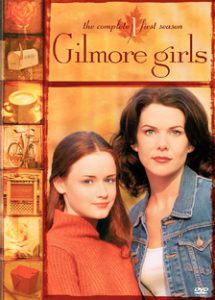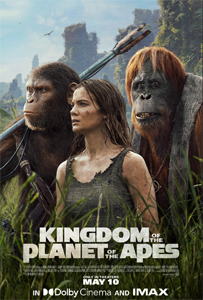Ten films in, and the “Planet of the Apes” saga is still worth going ape for. Wes Ball, director of the “Maze Runner” films, brings his dystopian sensibilities to a many-generations-hence continuation of the Caesar saga from the 2011-17 films.
“Kingdom of the Planet of the Apes” blends the flavor of Westerns, war movies, dystopian sci-fi, action spectacle and Campbellian hero’s journey into a tasty package. I’d call it old-fashioned blockbuster entertainment, except people don’t line up around blocks for movies now.
We’re introduced to unassuming but likeable chimpanzee Noa (Owen Teague), part of the West Coast clan that dates back to Caesar’s time. But the team of three writers don’t lean on callbacks. They pleasantly establish Noa and his two besties – female Soona (Lydia Peckham) and male Anaya (Travis Jefferey) – as they go on an eagle-egg hunt. This clan’s communion with nature is emphasized by their raising and taming of eagles.
Twisting his words
While there’s nothing new here thematically or narratively, I enjoyed learning about this future’s geography, cultures and politics. Calling to mind “Battle for the Planet of the Apes” (1973) except it’s not done on the cheap, “Kingdom” finds Noa’s clan living peaceably, even if they are a bit primitive – able to speak flawlessly but not knowing about the written word.
“Kingdom of the Planet of the Apes” (2024)
Director: Wes Ball
Writers: Josh Friedman, Rick Jaffa, Amanda Silver
Stars: Owen Teague, Freya Allan, Kevin Durand
Later, we meet the titular kingdom that has bastardized Caesar’s famous “Apes together strong,” taking it literally but stripping out moral freedom and replacing it with the brute force and constant threats of a Communist state.
Excellent character actor Kevin Durand (“The Strain”) shines as Proximus, a villain we love to hate. The subtlety of this chimpanzee dictator’s menace is refreshing after the bombast of Koba and Woody Harrelson’s human general from the previous films. It’s also neat in a “Walking Dead” sort of way that speciesism is gone; it’s now about tribalism. The good guys include various types of apes, and so do the villains – although gorillas still tend to be the brute enforcers.
The hero’s journey of Noa – spiced up with a score by John Paesano that features the horns we’d expect without being derivative – gives “Kingdom” its heart as he meets helpers along the way. Particularly great is quirky mentor Raka (Peter Macon, giving Durand a challenge for best performance), a brainy hermit whose mantra is “Let us continue.”

Raka passes to Noa the true meaning of Caesar’s teachings, yet infuses the important work of maintaining apes’ flame of knowledge with a twinkle, as if it’s all in good fun. Maurice from the previous trilogy has a challenger as the series’ most lovable orangutan.
Don’t forget the humans
Freya Allan is somewhat flat as Mae, the primary human character. Still, it’s fun to realize we as human viewers are totally in the mindset of apes Noa and Raka as a mysterious “echo” (human) tentatively lurks around their campsite.
“Kingdom” could’ve gone its whole runtime without a human and we wouldn’t feel we’re missing anything, so good are the motion-capture effects now. But at the same time, it is a refreshing wrinkle to see how humans fit into this ape-dominated Earth.
One quibble about the final act. I had felt “Kingdom” was building toward a twist on par with the 1968 original by revealing a well-known landmark in a dystopian future condition. It goes down that path by harking back to civilization as we know it, but could’ve used more revelatory punch.
A denouement features a recognizable character actress, Dichen Lachman (“Dollhouse”), thus cueing us that – as epic as “Kingdom of the Planet of the Apes” is on its own – this is the start of a grand new series. The final moment should get fans chattering till the next entry. “Apes” (films) together strong, indeed.

